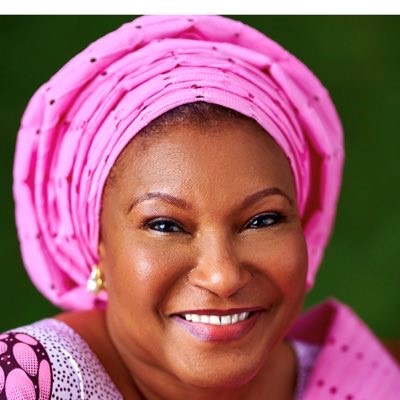The immense contribution of rural women, including indigenous women, to improving food security, reducing rural poverty, and advancing agricultural and rural development can never be overemphasized. It is for this reason that the United Nations (UN), Food and Agriculture Organisation (FAO), and the world, especially Africa, celebrate them.
“On this International Day of Rural Women, we acknowledge the crucial role that rural women and girls play in the ongoing fight against poverty, hunger, and biodiversity loss.” David Cooper, Acting Executive Secretary of the Convention on Biological Diversity
Rural women in Africa have traditionally supported their families, worked the land, and made sure that life flourished in the countryside. The majority of unpaid care and domestic work is performed by women in rural houses and families, making up a sizeable percentage of the agricultural labour force, including informal labour. They have a big impact on agricultural output, nutrition and food security, land and resource management, and enhancing climate resilience.
These women frequently struggle with a variety of issues, such as limited access to economic, medical, and educational possibilities. However, there are many outstanding women in Africa who are dedicated to empowering their fellow rural women. The development of rural women in Africa is being significantly aided by some African women, who will be profiled in this article along with instances of their noteworthy achievements.
Amina J. Mohammed (Nigeria)
Initiatives: Amina J. Mohammed, a Nigerian diplomat and the Deputy Secretary-General of the United Nations, has been unwavering in supporting gender equality and the empowerment of women in rural communities, contributing to many projects, including the Sustainable Development Goals (SDGs), that aim to better the livelihood of rural women.
Impact: Amina J. Mohammed’s initiative has aided the SDGs, which emphasise the welfare and empowerment of rural women in Africa and beyond, including gender-specific targets.
Theresa Kachindamoto (Malawi)
Initiatives: Theresa Kachindamoto is the paramount chief, or Inkosi, of the Dedza District in Malawi’s central area and has unofficial control over 900,000 people. She is renowned for taking stern steps to end child marriages and insisting that both boys and girls attend school. Theresa Kachindamoto has tirelessly fought for girls’ rights, and numerous young women and girls in rural areas benefit from her work.
Impact: Kachindamoto’s tireless efforts have significantly decreased the number of child marriages in her region and have made it possible for more girls to seek chances in education and the workforce.
Auma Obama (Kenya)
Initiatives: Kenyan sociologist and activist Auma Obama established the Sauti Kuu Foundation, which focuses on youth and economic development. Her art frequently touches on the difficulties experienced by rural African women.
Impact: By delivering training, guidance, and resources to help rural women improve their economic opportunities and living situations, the Sauti Kuu Foundation has contributed significantly to rural areas.
Tererai Trent (Zimbabwe)
The initiative by Tererai Trent, a researcher and activist from Zimbabwe, is the Tererai Trent International Foundation. By providing rural African women and girls with access to education and economic possibilities, her organisation empowers them.
Impact: Trent’s foundation has broken the cycle of poverty in thousands of rural African women’s and girls’ communities by assisting them in achieving their educational and economic goals.
Thuli Madonsela (South Africa)
Initiative Thuli Madonsela, a South African attorney and human rights defender, has been a significant voice in favour of rural women’s rights. She has looked at problems affecting rural areas like land rights and corruption as the former Public Protector of South Africa.
Impact: Madonsela’s work has brought important concerns impacting rural women to light and has sparked improvement in rural South Africa.
Graça Machel (Mozambique)
Mozambican activist Graça Machel’s initiative African feminist activist Graça Machel has fought for women’s rights and empowerment. She is a politician and humanitarian from Mozambique. She established the Graça Machel Trust, an organisation dedicated to the advancement of women’s, children’s, and leadership rights.
Impact: The Graça Machel Trust has led activities that empower women and give them access to resources and chances for both personal and professional success.
Agnes Kalibata (Rwanda)
Initiatives to enhance food security and rural livelihoods in Africa have received a lot of attention because of the efforts of Rwandan agricultural scientist and policymaker Agnes Kalibata. In addition to serving as the UN Secretary-General’s Special Envoy for the 2021 Food Systems Summit, she formerly served as the President of the Alliance for a Green Revolution in Africa (AGRA).
Impact: Kalibata’s initiatives have helped enhance rural women’s and their families’ access to markets, agricultural productivity, and livelihoods.
Chimamanda Ngozi Adichie (Nigeria)
Nigerian author Chimamanda Ngozi Adichie’s initiative Despite being largely recognised as a renowned author, Chimamanda Ngozi Adichie has promoted gender equality and the rights of rural women through her writings and platform. She frequently writes about issues affecting women in African society.
Impact: Adichie’s works and advocacy work have aided in opening up the discussion of women’s issues to a wider audience, dispelling myths, and empowering women—including those in rural communities.
Ellen Johnson Sirleaf (Liberia)
Liberian Sirleaf’s initiative: The former and first female president of Liberia, Ellen Johnson Sirleaf, has greatly advanced the status and empowerment of women. Her administration has introduced laws and programmes targeted at enhancing the status of women, particularly in rural areas.
Impact: Sirleaf’s emphasis on gender equality during her presidency resulted in legislative changes and more possibilities for rural women in Liberia.
Mariéme Jamme (Senegal)
Initiative: Mariéme Jamme is a techie and businesswoman who founded “I Am the Code.” This charity focuses on teaching girls and women in underserved regions, notably rural ones, digital literacy and coding skills.
Impact: By providing rural women and girls with the digital skills they need to succeed in the modern world, MariémeJamme’s work has given them new chances.
Angelique Kidjo (Benin)
The initiative is by Angelique Kidjo, a renowned Beninese musician and UNICEF Goodwill Ambassador who utilises her platform to promote women’s and girls’ rights in Africa. She supports a number of programmes designed to empower women and girls in rural communities.
Impact: Kidjo’s advocacy activities and music have given countless African women and girls courage and a sense of action.
Fatou Bensouda (Gambia)
Initiative by Fatou Bensouda, the former Chief Prosecutor of the International Criminal Court (ICC), a Gambian attorney who has worked on gender justice issues. She works to confront sexual assault cases and promote the rights of women.
Impact: By strongly conveying that impunity will not be accepted, Bensouda’s work at the ICC has been crucial in ensuring responsibility for crimes against women committed in crisis zones.
Common Threads of Impact
In their collective efforts to support the growth and development of rural women across Africa, these remarkable women exhibit several common threads of impact. They are unwavering champions of gender equality and women’s rights, frequently leveraging their positions of influence to advocate for these causes. Their programmes are centred on empowerment, striving to expand educational opportunities, employment prospects, and access to vital resources for rural women.
Many of these women hold or have held positions of leadership, using their roles as platforms for advancing women’s rights and promoting gender equality. Their initiatives extend far beyond their national borders, having a profound international impact by positively affecting the lives of rural women throughout the continent. Above all, they serve as inspiring role models, demonstrating the remarkable achievements possible through determination and resilience, thereby providing crucial inspiration to women and girls in rural communities.
The road to growth and development for rural African women is long and difficult, but these women’s devotion and dedication, along with that of many others across the continent, give hope and advancement.
In his remarks on the day, UN Secretary-General António Guterres called for a transformation of our food systems to guarantee that everyone has access to a healthy diet that helps restore nature, combats climate change, and is tailored to local conditions.
“Across the world, food systems depend on the daily work of rural women. They play a variety of essential roles, from raising crops and processing their harvest to preparing food and distributing their products, ensuring that both their families and communities are nourished. Yet paradoxically, those same women often have less access to food and a higher risk of hunger, malnutrition, undernutrition, and food insecurity than their male counterparts.
The future seems promising for further improvements in the rights and welfare of African rural women. These women’s efforts will continue to be crucial in determining the future of rural communities and the continent as a whole, especially as the international community emphasises the significance of gender equality and sustainable development.
While we celebrate and commemorate the International Day of Rural Women, we salute them for the crucial role they play in advancing agricultural and rural development across the globe.


